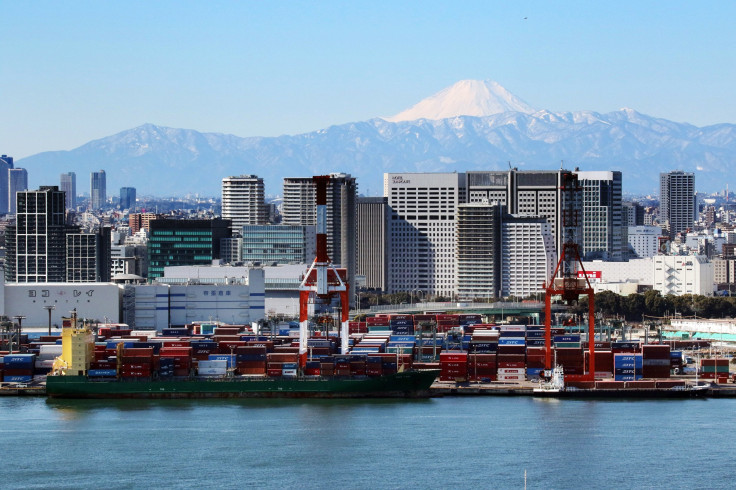Japan’s Annual Trade Deficit Narrows On Lower Oil Import Costs

Japan recorded a trade deficit for the fifth straight year in 2015, but the deficit narrowed 78 percent over 2014 as lower oil prices pushed down import costs and a weaker yen helped spur a modest increase in exports. Preliminary figures released Monday by Japan’s finance ministry showed that the value of exports rose 3.5 percent in 2015 from the year before, while imports dropped 8.7 percent.
Last year, the world's third-largest economy’s trade deficit stood at 2.8 trillion yen ($23.5 billion), down from a massive 12.8 trillion yen ($107 billion) in 2014.
Moreover, Japan’s trade balance swung to a surplus in December, as an 18 percent annual drop in imports offset the 8 percent drop in exports. The December trade surplus stood at 140.2 billion yen ($1.2 billion), compared with a deficit of 381.3 billion yen ($3.2 billion) in November and a deficit of 665.6 billion yen ($5.6 billion) in December 2014.
“Exports haven’t grown much, but the trade deficit has narrowed because commodity prices are slumping more than expected,” Atsushi Takeda, an economist at Itochu Corp. in Tokyo, told Bloomberg. “I don’t think that’s necessarily a good thing. If you think the decline in oil prices has gone too far, imports will increase again and widen the trade deficit eventually.”
Japan’s trade balance has been in the negative for 49 of the 58 months since the March 2011 earthquake and tsunami, which forced the government to shut down its nuclear reactors and increase reliance on energy imports. More recently, the slowdown in China and weakness in the global economy have hurt exports, despite a decline in the yen making Japanese goods more competitive overseas.
In 2015, Japanese exports to China fell 1.1 percent, to 13.2 trillion yen ($95.8 billion). In December, compared to a year earlier, the drop in exports to China was much more marked, registering a fall of 8.6 percent.
However, exports to the U.S. rose 11.5 percent to 15.2 trillion yen ($128.6 billion) in 2015, making the U.S. Japan’s largest export market.
The latest data comes as waning inflation expectations and a recent appreciation of the yen build pressure on the Bank of Japan to expand its already massive stimulus measures. The central bank is expected to announce its decision following a closely watched policy meeting later this week.
© Copyright IBTimes 2024. All rights reserved.





















